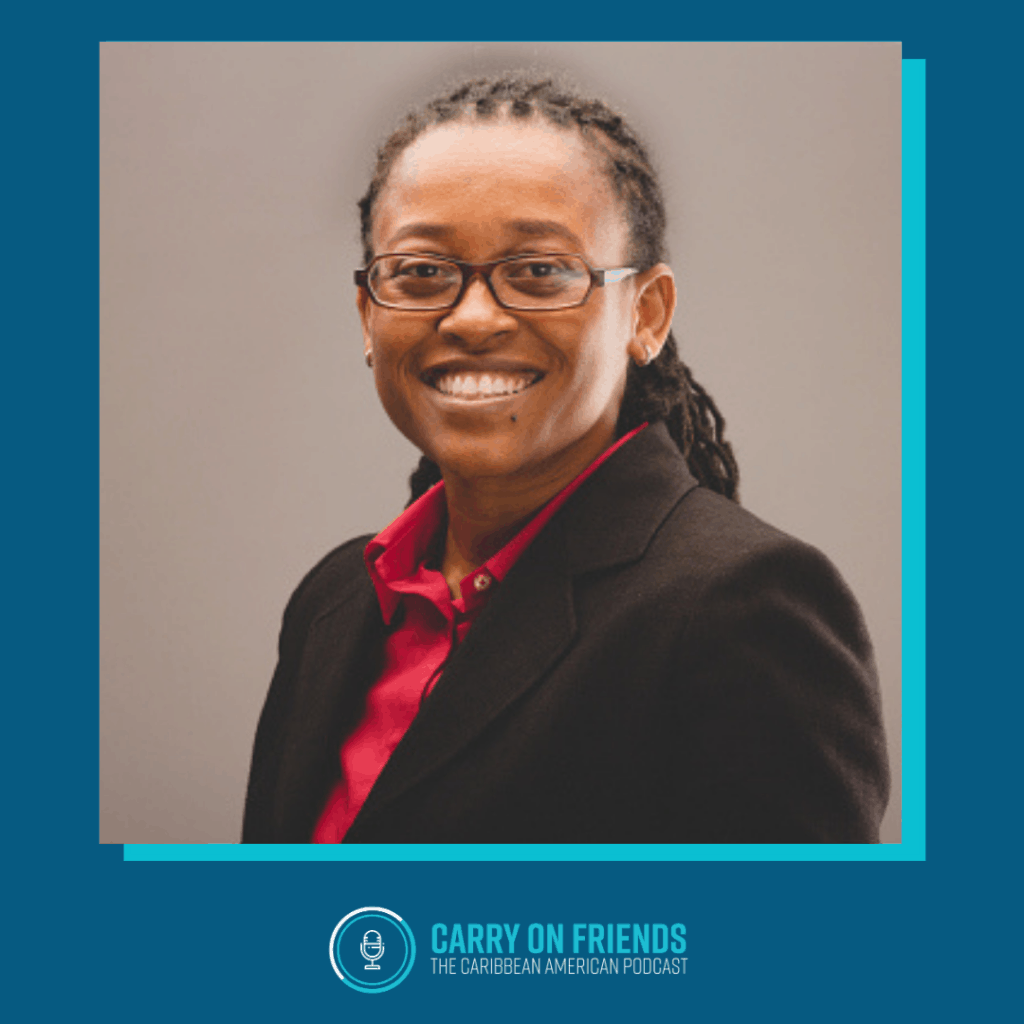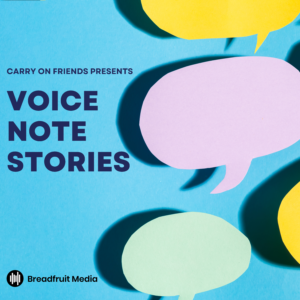
Ep. 36 (Part 2): Trademarking Your Business & Protecting Your Brand
What’s Trademarking?
Intellectual Property involves trademarks, service marks and copyrights. But what do these terms mean and which is best for protecting your business?
In this episode I continue my interview with Guyanese American Attorney Romola Lucas. Here, she breaks down intellectual property, trademarking, service marks and copyrights. Listen to part 1 of this interview on business entities.
Romola is an attorney at The Law Office of Romola O. Lucas and she works with “solopreneurs” and “artistpreneurs” doing everything from IP and business formation support, to business succession planning as well as estate planning.
In addition, Romola is the co-founder of Caribbean Film Academy.
Connect with Romola – Facebook | Twitter | LinkedIn
Connect with Caribbean Film Academy – Facebook | Twitter | Instagram | Youtube
Enjoyed the show? Please remember to leave us a rating and review in iTunes.
Transcript
Kerry-Ann:This episode is brought to you by the carry on friends ambition t shirt collection, and it’s in celebration of not only Caribbean Heritage Month but just your ambition celebrate our ambitious you are ambitious up like seven. Yeah, bare ambition. You have ambitious friends that are ambitious things support the T-shirt collection. It can be found at carry on friends. com forward slash ambition and there’s a coupon code it’s ambition 10 or ambitious 10 either one and you’ll get 10% off your order. And thank you in advance for supporting that.
Hello friends welcome to part two of our episode 36 with Romola Lucas on the topic, starting a business and protecting your brand. So part one was more on business formation and you could listen to that episode to find out more. We covered a lot of different entities and things you should consider with doing the entities and in this episode, we’re going to focus on brand protection, intellectual property, trademark, copyrights and all that good stuff. I am so excited for you to listen to this episode because Romola really gave some really important tips and even reminders, you know, because as you are going along your way you start your business, you know, you might not be keeping up with things as she said in part one. So if you haven’t listened to part one, you should definitely check out Episode 36 part one. Just to give you a little background, Romola, she is an attorney and she represents Guyana. And she’ll tell you more about the special connection Guyana has to the Caribbean. She’s also the co founder of the Caribbean Film Academy. And they’re really doing great things. So I’m not going to keep rambling any longer. I’ll let you listen to this episode on protecting your brand. Oh, I should also let you know that the conversation picks up right after I said in the last episode where we were switching gears. And that’s where we pick up.
Kerry-Ann:So switching gears a little bit, right? Let’s just say be we’ve selected the right legal entity that works for us. And we’re doing everything by the book. Starting next month, every month there’s going to be our meeting.
Romola: Yes, even if you meet with yourself and you record a record once you decided that’s fine. As long as you have that record.
Kerry-Ann:Okay. Then I’m Good. I meet with myself every Tuesday. I meet, I plan and we do everything and I take notes. So okay, all right, so my situation not so bad.
Romola: Just Google for minutes, meeting minutes sample and get someone’s example of meeting minutes and, and craft yours in the same way. Keep it all together in one place. If you’re ever audited, you have that information to provide.
Kerry-Ann:All right. Thank God for my Evernote because I keep alot of notes and
Romola: There you go
Kerry-Ann:Oh, my goodness, you just saved me a while ago, to you know, I was fretting. But I’m good. All right good. All right, so let me go back to in terms of protecting your brand, right? So let’s talk about what is you know, intellectual property.
Romola: Intellectual property is really the term that is used to describe the work that someone has created, whether it’s artistic, whether it’s, whether it’s technical. It’s just the general name that incorporates work that has been created.
Kerry-Ann:All right, where does logos and business name and trademarking where does this come into intellectual property? If it plays a part.
Romola: Right. Yeah, it does. So in terms of intellectual, property, there’s three categories that work falls under: patents, trademarks, and copyrights. So a patent is basically used to protect inventions. And it gives you a property right in your in your invention, which is why it’s called intellectual property. So they’re saying that you own it, it’s like real estate. But it’s not, it’s not a house, your design or your idea or your creation, patent gives you a property interest in your invention. On the other hand, a trademark, it’s, it’s a word, or a name, or symbol or some other device that is used in trade of goods and services. What the trademark does is, is that it protects that name for you, or for your exclusive use, and a trademark and a service mark are the same, except the trademark is for goods and services, markets or services. And then you have copyright, which is a form of protection for authors of what we call original works of authorship. So this is where books, drama, music, visual arts, and other types of similar intellectual works are protected.
Kerry-Ann:So. I like that definition. But I have a question. I’m always going to put myself in the hot seat. All right. So for trademark, it says use of a particular name or something that you do business. So you know, Carry On Friends, it’s not, you know, I’ve always been under the impression that it has to be unique, you know, in order to trademark or use it as a trademark our service mark. And so Carry On Friends in and of itself is not unique. It’s a phrase, for lack of a better word. Is that something that can be incorporated? Uh, no, not really, you know, I know it’s a little bit more on the advice side, but it’s, it’s very unclear as to, you know, how, what name can be trademarked? I don’t know if I’m making sense. Okay.
Romola: Yes. So I mean, there’s, there’s a general perception that if you have formed a business, and you’ve come up with a name, and you just like this, you just sat in your chair, and you had a moment, an aha moment, you’re like, yes, this is what I’m going to leave my business Carry On Friends. And then you do a Google search, and you don’t see anybody else with that name. And you’re able to register the name in your state. And so you feeling pretty good about it, right? This is pretty original; no one else is using it. And then you go to the trademark website, USPTO trademark website, and you do a search, and you still don’t see anyone using your name. And you’re like, Okay, I think I want to trademark this. So the question is, why trademark it? And then once you get past that question, I mean, the obvious answer to that is, well, you know, the fact that you’re using the name, and you’re using it in commerce, as we would say, means you have a trademarked name you already do. And the typical symbol that people would use is TM, that’s basically putting people on notice that this person intends to trademark this name.
Kerry-Ann:So intense, even if it hasn’t happened yet. You can still use the TM?
Romola: Yes.
Kerry-Ann:Oh, my goodness, I see a lot of TMs out there
Romola: But that’s but that’s why you put it to put people on notice that you intend to trademark it. So they should not try to go use it. But the reality is, you already have a trademark in the name. What registering it does is it allows you to prevent other people from using it. So whether or not you actually go ahead and trademark your name is a question that you know, you have to really think about, because this is not a cheap process. Copywriting is much more cost effective, but it doesn’t work for marks, it doesn’t protect marks. So you can’t, use copyright. So a trademark is something you should, again, it depends on your business plan, where you see the business going in a few years, and whether or not you’re going to be that involved in commerce, that you don’t want your customers mistaking your name for someone else’s. Or seeing someone else with a similar name or, or the same name that you’re using. Maybe they’re selling a different good or service. But you don’t want that confusion to exist in the marketplace. So then you go, you register your trademark and your mark. So that you can then stop other people from using it. There’s an application process that you have to go through and to be honest with you, the trademark or the or the marks that get that are the most likely to be registerable are ones that are unique. There’s no long history of trademarking marks. And so there’s a lot in the library of mark that have been registered. So at this point in time, it completely made up names are the easiest ones to go through the process. It’s not guaranteed anyway, either way, it’s not guaranteed. But if you completely make up a name, like Trade Service, or any names that are not commonly used, so like you know, back in the Caribbean, we call toothpaste Colgate.
Kerry-Ann:Everything is genericized now.
Romola: Exactly. So when something like that happens, you can’t, like you can’t, Colgate can’t register Colgate as a trademark anymore, because it’s too commonly used a word. And it’s a made up word. But it’s lost its ability to be trademarked. And so that’s kind of what you have to think about. When you’re thinking about trademarking your name.
Kerry-Ann:The more unique name is going to be more likely, even though not guaranteed.
Romola: Right. And there is a significant cost to this. So you can go to the USPTO website, like you can search your state database, whatever is available to you, you can search the federal government’s database, but you still may not pick up anyone else that’s using your name. So then, you know it’s best if you pay a search company to do a, professional company can do a search for you. And then you have to pay the registration fees. And then if the application is not approved, you kind of have to go back to the drawing board and restart the process. You’re paying for the cost of getting that done. And hopefully you’re using an attorney to do this. And so you’re paying attorneys fees at the same time. But attorneys are good at being able to tell you what the likelihood is of your mark being eligible to be registered. So they do that type of analysis for you. So when you first reach out to an attorney to get some counsel on trademarking, or registering your trademark, one of the things that they do is an analysis of your mark, and they can tell you what the likelihood is, what it’s not, and what are some things you might you might be able to do that would make your mark more appealing. So you have all the information before you make the decision as to whether or not you’re actually going to do it.
Kerry-Ann:All right. All right. So Alright, so let’s say, you know, all right, I’m not going to trademark Carry On Friends, because clearly it just really common. What other ways can I protect my brand? You know, it’s out there. I know, as content creators, and I know that I’ve been in blogger groups where people, you know, I know, other colleagues, their content is constantly being stolen by another site who’s just kind of reposting it. And I know that there are some Internet laws that could say, well, you’re not supposed to, or you could get some rights, but really what other options we have in terms of protecting our brands. And, and not only protecting our brands to make sure we don’t break no laws and, you know, infringe, on anyone’s anything?
Romola: Right. That’s a tough question. Because there really aren’t any laws protect you in that regard, unless you actually get a name that is trademarkable. And you registered to trademark. In terms of your content, that should be copyrighted. But again, one as soon as you write something, you have a copyright. Registering your copyright just allows you again, to be compensated, if someone steals your work, and you are harmed by it, then it just allows you to get compensated for it. But if you copyright the content that you put on your blog, and someone uses it, you know, they just copy and paste it onto their own, I mean, I would say the first thing to do is send them a letter, telling them that they basically stole from you, and to take it down immediately because it’s called a cease and desist letter. After that, you should probably engage an attorney to help you with the rest of the process. But that’s basically how it starts. And usually people respond to that, like, if you send them a letter like that, they usually respond to take your content, though, if they don’t, then you need to actually engage an attorney to help you through the process. But what it comes down to is that you have to police your content. So if you put something on there, and you care about whether or not other people are using it, stealing it, you know, not giving you the credit, then you have to police your content.
Kerry-Ann:That’s a lot of work. Because to troll the website to see if somebody else copy and paste your stuff. That’s a lot of work. But you know, sometimes, you just got to do what you have to do, but you know, and I’m sure, so outside of me a content creator, what do you see? What are common mistakes you see people make when it comes to their brands and the protection of their brand or lack of protection thereof?
Romola: Well, I mean, what I see really can be group into, can be put into two groups, one, people who don’t fully understand what the, what their rights are, and what they need to do, and then others who think that they can do it themselves. And then they go out and mess it up, somehow. So specifically, I get this question a lot, I want to, I want to trademark my name before I launched my website, and I’m launching my website next week. So then, you know, I would have to go through the entire process. Trademarking is, doesn’t work that way, you can’t submit an application this weekend and think that you have trademark protection next week. It’s a long process. It’s expensive. And so this is not something that you can actually do. So that’s one category, people who don’t fully understand the mechanisms and the process, and they’ll go to the to the websites, and they will read all this information and say well I have to do this and I have to do that. But there are things that people don’t consider in terms of timing, and things. The explanations don’t give you an accurate picture of what the processes, right.
Kerry-Ann:It’s a DIY culture that we live in information is free, but it’s like putting that information together and having that make sense,
Romola: Right. And It is helpful when clients have, have read these things. So they have an idea of what is, what is going to happen. So they’ve kind of taken a good step, it’s usually way less information than they actually need to do this themselves.
Kerry-Ann:I had a question. So I thought that before you can do the trademark, you have to use it the name…
Romola: Yes,
Kerry-Ann:…for a period of time. So and the reason why I asked that, because if someone hasn’t launched a website, and they want to trademark the name before they launched a website, are they using the name before because I thought you had to use it before you could even trademark it.
Romola: And then that was the other thing, I have to say that that in addition to the fact that the process takes long you haven’t actually used your mark in commerce, and you have to establish that you have you have done that, and you’ve been doing it for a while. So it’s not even something you can’t start a business today and register your trademark today. You do have to establish that you have used the same commerce and you’ve done so before anyone else.
Kerry-Ann:That’s that is awesome. I just want to thank you, I learned like a couple things. And I make sure I’m going to make sure I stay on top of you know, having my monthly meeting with the board of directors and having my minutes. This is like really good, because we’re out here creating businesses, and we’re doing things and a lot of times, we are not fully protected, getting money is good too. But making sure that legally we’re protected and our families protected, our assets are also important because then you do all that work for only somebody to lose it by, you know, be an oversight. So,
Romola: Right. And they know that for a lot of small business owners being able to afford a lawyer is something that most people think they can’t do, they can barely, they can’t afford to keep 1500 dollars in the bank account to avoid bank fees. And so like actually hiring a lawyer to help them through any kind of business formation processes, usually not an option in their minds, several attorneys, myself included generally have some kind of payment structure for specifically for people who are who are starting up small businesses to help them through the process. So it’s not necessarily that it’ll be it’ll cost less money, it’s just that those fees are paid is something that if you find a good attorney, and you know they’re willing to work with you, you can you can negotiate that as well. So I do think it’s better to try to negotiate payment of legal fees, rather than not use an attorney at all. And just include that as a business expense.
Kerry-Ann:Because it is a business it is a business expense. And that is really important as we are creating businesses and building brands. And if you have visions of growth, you’re going to need to make sure that you know you can you have somebody on your team to help you navigate that growth period, because we all want to be successful. But if you don’t have the right people on your team and accountants and I’m sorry to say, you know, nothing, against, the big accounting or the tax refund people but you know, you really have to get a good accountant and a lawyer if you are an entrepreneur, and you’re opening a business because again, rapid refund no work when you’re in business.
Romola: Yeah, that is true. And what you’re describing is absolutely how you should, how you should think of these people; they’re a part of your team. Yeah. And they’re there to give you advice, you ultimately make all the decisions, but they’re there to give you advice and tell you what you need to do to stay in compliance with the laws that you’re operating under. And they should be regarded, as your team members, and a lot of them would love to function that way.
Kerry-Ann:I know it is one less thing to think of, you know, and, you know, I’m glad you said it, it’s hard to think of you know, spending money for an attorney. But you know, sometimes people have these great opportunities that pop up, You have a contract you, have to read, and you might get so excited, I’ma sign it, and then somewhere down the road. You know, like the contract jook, you as we said, you know, it’s great. So I really, really want the audience to understand that, you know, legal services, while they will cost there’s probably a scale, but should definitely be part of the operating expenses. All right, so, as we wrap up, we want to thank Romola for coming on and kind of giving us the basics in terms of starting a business and protecting the brand. And as the topic says, it’s the basics, it’s really just the surface to cover on each person’s experience and situation is unique. And depending on where you live is unique. You know, even here in New York City, it’s, you know, there has to be some slight differences. So you really should consult an accountant, a lawyer and accountant and if you’re here in New York City, you should definitely support or you know, fellow Caribbean you know, sister and you know, reach out to Romola I have her contact information in the show notes. But Romola I want to thank you so much for reminding me to make sure I have my monthly meeting. So I really want to thank you. And, you know, it was a I cannot wait to share this episode, because there’s so much information out there on the web, like we’re talking about, and it’s just processing all of this information. And you know, it’s good to know, but you know, we need someone like you to kind of put it all together for us to understand because, you know, we’re juggling a lot of stuff already. So
Romola: I really, really thank you for being on the show. Thank you for having me I had a good time.
Kerry-Ann:Awesome. Awesome. So all right, folks, until next time, walk good.


